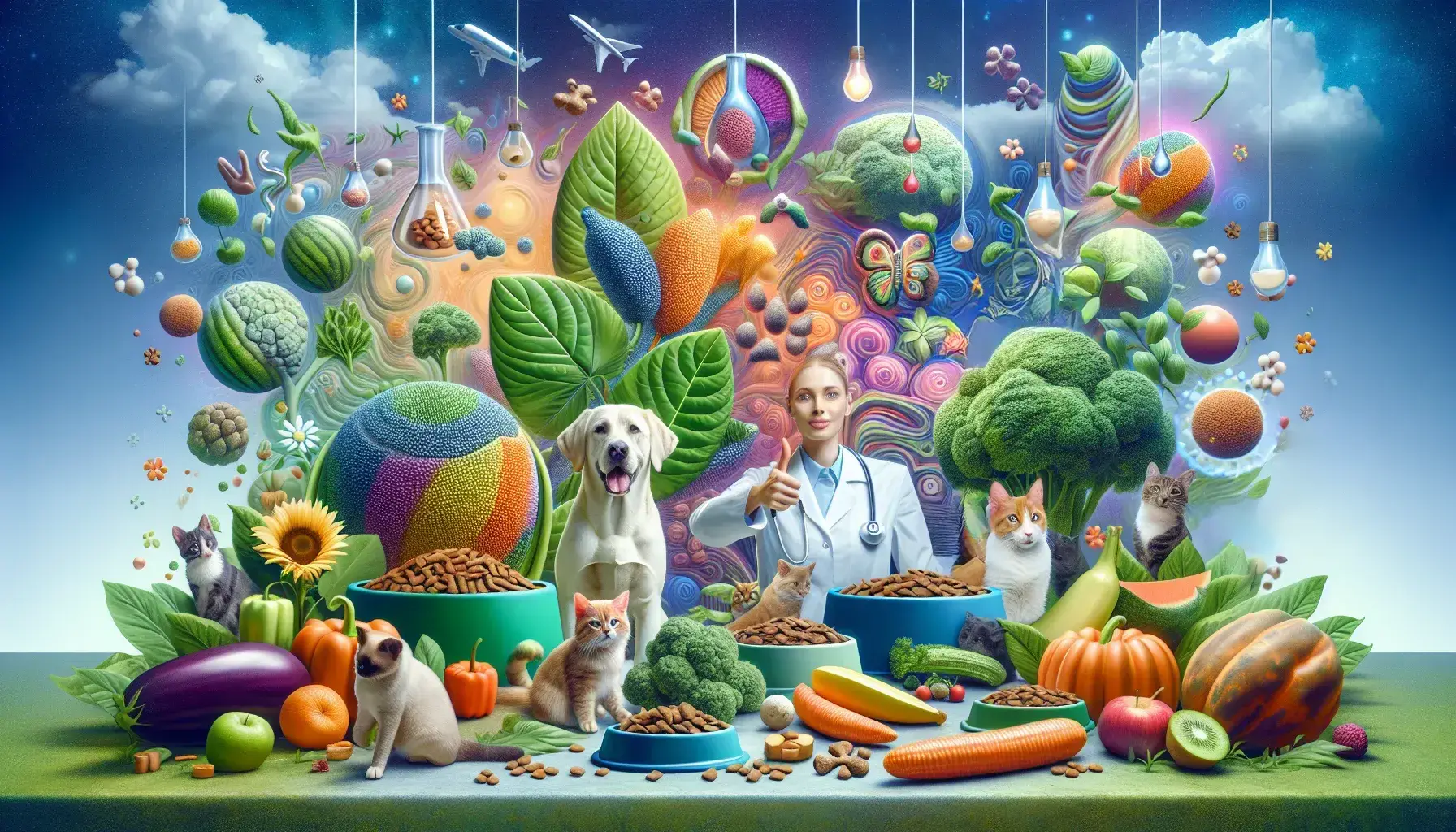Pioneering Plant-Based Diets for Pets: Are Veggies the Future of Fidos Food?

As pet owners become more health-conscious, the conversation around plant-based diets for dogs and cats has gained momentum. Here at Tails' Talks Blog, we've been closely tracking this trend, noting that certain plant-based ingredients can offer dogs and cats a variety of nutritional benefits. Vegan diets for pets are often enriched with vitamins like B12, antioxidants, and dietary fibers which aid in digestion. Proponents argue that such foods can lead to improved health outcomes such as a shinier coat, allergy relief, and weight management.
Discovering Nutritional Advantages of Plant-Based Diets
The sustainable pet care movement suggests that moving toward plant-based pet foods could significantly reduce the environmental pawprint. Meat production is resource-intensive, contributing to deforestation and greenhouse gas emissions – issues that a shift to plant-based diets could mitigate. By integrating plant-based options into our pets' diets, we not only meet the nutritional needs of our furry friends but also embrace an eco-friendly lifestyle.
Sustainability: How Plant Diets Promote Eco-Friendly Pet Care
There is a common misconception that dogs and cats cannot thrive on a meat-free diet. However, with advanced nutrition science, we now understand that it's not just the source of protein but its quality and balance that matter most. While dogs are classified as omnivores capable of adapting to a well-planned vegetarian diet, cats are obligate carnivores, meaning they require certain nutrients found naturally in meat. This doesn't rule out a plant-based diet but it does mean their dietary needs must be met through careful planning and supplementation.
Related Article: Label Literacy: Deciphering New Pet Food Regulations for Consumers
Debunking Myths About Meat-Free Meals for Pets
The much-debated topic of whether dogs can go vegan has sparked both research studies and numerous personal anecdotes. We believe that peer-reviewed studies alongside real-life experiences form the best guidance. Some studies suggest that with complete and balanced formulations, vegan diets can support normal growth and maintenance for dogs. Real-life case studies often showcase individual variation; some dogs thrive while others may not fare as well on plant-exclusive regimens.
Constructing a healthy plant-based diet for your pet involves tailor-making meals to meet their specific needs. There are essential nutrients like amino acids, taurine and L-carnitine for cats, as well as balanced ratios of calcium to phosphorus in both dogs and cats that must be considered. High-quality vegan pet foods often utilize legumes, whole grains, and soy as protein sources – but it's essential to monitor your pet's health with regular vet check-ups when making any diet adjustments.
Can Dogs Thrive on a Vegan Diet? Research Insights
Many veterinarians are starting to recognize the health benefits associated with vegetables in a pet’s diet – particularly for dogs with specific allergies or food sensitivities. Vets stress the importance of comprehensive nutrition regardless of being meat-based or plant-based. They advocate for inclusive products with AAFCO (Association of American Feed Control Officials) approval, indicating they've met industry standards for complete pet nutrition.
Tailoring Plant Proteins for Your Pet's Nutritional Needs
The surge in popularity of plant-based diets has seen corresponding growth in the market. We have observed an increasing number of companies offering a variety of vegan or vegetarian options for pets. These range from complete meals to treats supplemented with essential nutrients absent from plant sources. This burgeoning sector not only supports pet owners looking for alternative dietary choices but also aligns with broader trends towards sustainability and ethical consumerism.
Vet Insights: Health Benefits of Vegetables for Pets
Transitioning your pet to a plant-based diet must be done cautiously and gradually to avoid digestive upsets. Start by mixing small amounts of the new food with their current food, slowly increasing the proportion over several weeks. Digestive enzymes and probiotics can assist this process by aiding gut health. Above all, regular consultations with your vet during this transition will ensure your pet’s nutritional needs are being met adequately.
At Tails' Talks Blog, we're dedicated to exploring every facet of your pet’s well-being - because when it comes to their health and happiness, every detail counts!
Frequently Asked Questions
Plant-based diets for pets can provide essential vitamins, antioxidants, and dietary fibers that promote better digestion and overall health. These diets may lead to benefits like a shinier coat, allergy relief, and effective weight management, making them a viable option for health-conscious pet owners.
Yes, dogs can thrive on a vegan diet if it is well-planned and nutritionally balanced. Research indicates that complete formulations can support normal growth and maintenance. However, individual responses vary, so it's important to monitor your dog's health closely during dietary changes.
Transitioning your pet to a plant-based diet should be gradual to prevent digestive issues. Start by mixing small amounts of the new food with their current diet, gradually increasing the new food over weeks. Consulting with your veterinarian throughout this process is crucial for ensuring nutritional adequacy.






